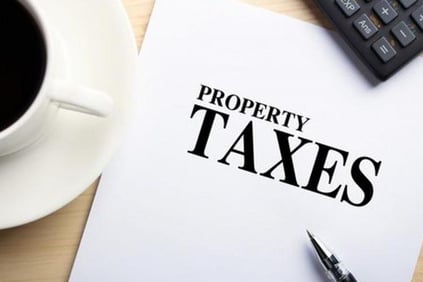To understand if you can fall victim to tax foreclosure you first have to determine whether you have an escrow account. Government-backed loans require an escrow account. Lenders of conventional loans that are not backed by the government can decide if they want to have an escrow account or not. Once you have an escrow account, you don't need to worry about paying property taxes because your loan servicer takes care of it. If you are a homeowner who does not have an escrow account for your mortgage or you have made all of your mortgage payments and own your home completely, you could be served with tax lien foreclosure documents. Tax lien foreclosure is a foreclosure that takes place after you fail to pay your property taxes. The foreclosure is initiated by the county that you live in because they have the lien on your home once you fail to pay the tax.
If you can't afford to pay both your mortgage and your property taxes, neglecting to pay one will not save the other. If you are served with tax foreclosure documents you have a few options to save your home. All of these begin with seeking the advice of an attorney who can determine which of these options best suits you:
Object to the Assessments
As a homeowner you have a right to object to the assessment of the amount you owe and reduce your tax liability. You can say that the property has not been assessed correctly or you can argue that the assessment of your property is much higher than comparable properties in the area. If they reduce the assessment you may have an easier time paying off the debt you owe.
Seek an Abatement, a Deferral or a Compromise
States sometimes have abatements that will reduce the tax liability of certain customers based on age, disability, income level, or personal status. Sometimes states will als o grant you a deferral if you can prove that you've suffered a hardship. The homeowner is also able to, on occasion, negotiate with the taxing authority and reach a compromise that works for both of you.
o grant you a deferral if you can prove that you've suffered a hardship. The homeowner is also able to, on occasion, negotiate with the taxing authority and reach a compromise that works for both of you.
Redeem Your Home
If the tax sale has already taken place you have a period of time after the sale in which you can redeem your home by paying the taxes owed along with interest, penalties and costs. You are also allowed to remain in the home during the redemption period.
Set Aside a Completed Tax Sale
If you can show that there is a defect in the lien or in the sale process of the home, this may provide grounds for setting aside the sale. Setting aside the sale means that the sale becomes invalid and you get your house back. You must show that the defect prejudices your rights as the homeowner. Also, if you already paid the taxes due and the house was still sold, if you show that you paid the debt owed you can void the tax sale. You can also set aside the sale if you can show a legitimate excuse for failing to pay your property taxes.









